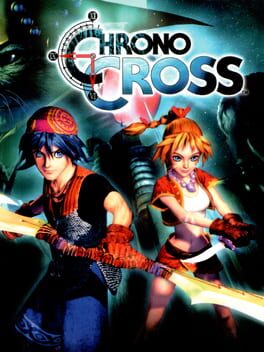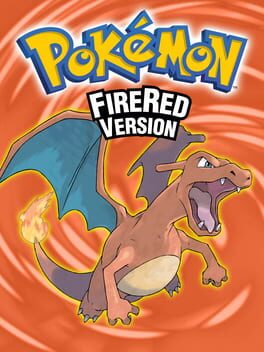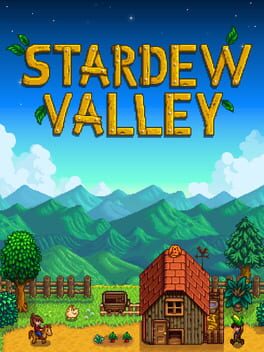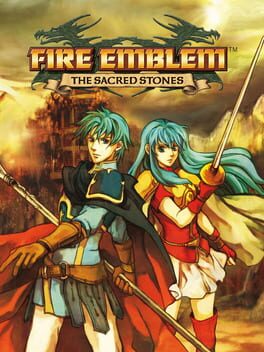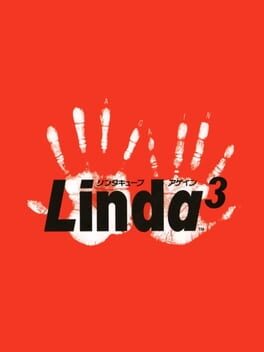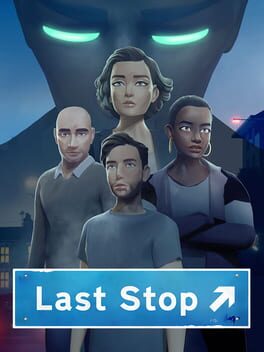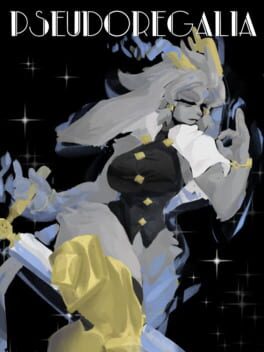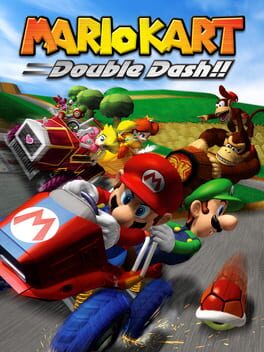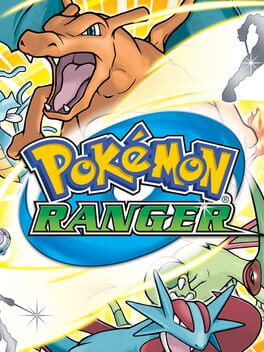VoltageVO
49 reviews liked by VoltageVO
Chrono Cross
1999
Another entry from my List of the Thirty-Five Best Games I Played in 2023, now available à la carte:
On Chrono Cross (Or — "How I Developed a Palate for Poison")
My grandmother doesn’t live in Vermont anymore. A couple years ago, she and I went back there together and rented a place to relive those days. Naturally, the rental had some similarities to her old place. We drove around, taking in familiar sights, waiting for the rest of the family to join us. I fired up Chrono Cross for the first time one evening, and promptly came down with a case of water poisoning.
If I believed in omens, I’d take that as a bad one. I touched a game about a character who finds himself in an eerie facsimile of home, itself the strange and twisted sequel of a beloved favorite, and it left me hurling into a toilet. The water supply we’d been drawing from was unfit for human consumption. I spent the recovery period with Chrono Trigger and Dragon Quest V on DS, beneath the more familiar ceiling of a family friend’s house. I’d later start writing a non-review about how I didn’t have to play Chrono Cross, eschewing the pretense of being some aspiring member of the Backloggd “videogame intelligentsia.” I don’t need “cred,” right??
Well.
I played Chrono Trigger again in 2023 at least twice, depending on how you define a “playthrough”. The first was because I’d just finished Final Fantasy X and wanted to make some unfair comparisons. The second was because I was three-fourths of the way through Chrono Cross and…wanted to make some unfair comparisons. Even in the thick of it, I was avoiding the inevitable.
So…About the Game
Cross makes every effort possible to be anything but a clean, obedient sequel to its father. And you know what? Good. Trigger’s development was predicated on originality, and should likewise be followed up with another adventurous convention-breaker. The “Chrono Trigger 2” advocated by the likes of Johnny Millennium doesn’t appeal to me; lightning doesn’t strike twice. Still, Cross is Trigger’s opposite even in ways it really shouldn’t be.
With the exception of its original PSX audiovisual presentation, some of the most colorful and lush I’ve ever experienced, just about every one of its ideas is noncommittal and indecisive. Monsters appear on the overworld again, but you won’t find anything as deliberately paced as Trigger’s level design to elevate this from the status of "mild convenience." The conceit of its combat system is worth exploring – characters deal physical damage to build spell charges — but the deluge of party members and fully customizable spell slots amounts to a game that would’ve been impossible to balance. Level-ups are only granted during boss fights, and the gains acquired in normal battles aren’t worth the effort, so the whole thing snaps in half not 50% of the way through. It isn’t measured to account for the fact that you can take down just about everything with an onslaught of physical attacks by the midgame.
Then again, if the combat had been as challenging as the story is bizarre, I don’t know that I would’ve stuck around all the way to the end. Maybe I wouldn’t have been as gung-ho about swapping party members around and collecting them like Pokémon. Amid its spectacle and ambition, the wonder of sailing the seas and crossing dimensions, I left most events unsure of what to think, positive or negative. It wasn’t ambivalence, exactly.
SPOILERS AHEAD
It’s like this: Fairly early on, you’re given an infamous decision. One of the major protagonists, Kid, is dying of a magically-inflicted illness, and the only antidote is Hydra Humour. If you agree to go after it, you’ll find that it can only be extracted from the Guardian of the Marshes, and its death would mean the deterioration of the ecosystem which relies upon it. The dwarves and all other life in this biome would be put at risk. I weighed my options. I decided to reload a save and refuse the quest. Kid wouldn’t want her life to come at the cost of hundreds, if not thousands of others. So I start down the opposite path…
…Only to find that, in this route, a squad of human soldiers kills the hydra anyway, leaving the dwarves to flee their uninhabitable home to lead a genocidal attack on the fairies’ island to claim it for themselves. Jesus. The dwarves’ manic strangeness did little to downplay how chilling the result of my little coin flip was.
After an effort to defend the few remaining fairies and keep the dwarves at bay — leaving the survivors to process the turmoil of their new reality — after all that…it turns out that Kid is fine. She got over the illness by herself, offscreen.
For as many words as it goes on to spew, no moment of my Chrono Cross playthrough spoke louder than this one. Chrono Trigger’s party was faced with a choice — allow Lavos to erupt from the planet and drive everything to the brink of extinction, or risk everything to prevent the apocalypse. It’s a thousand years away, these three characters can live out the rest of their days comfortably and never have to concern themselves with it. They’re shown an End of Time, proof that the universe won’t last regardless of what they do, and still decide to fight on behalf of the world. It’s worth trying, if only to preserve a few more precious seconds of life for their descendants and their home.
Chrono Cross (eventually) reveals that their meddling allowed Lavos to become an even more devastating monster. We can defeat it, but who can say that won’t result in an even more cataclysmic fate? Because he lives and breathes, Serge’s timeline is worse off. It’s hard to tell whether that’s lore nonsense, self-flagellation on the game’s part, or genuine philosophizing. It wouldn’t be alone in that. As a chronic “downer,” I can’t help wondering if there’s no way to survive in the modern world without directly or indirectly participating in human suffering.
Maybe Writer/Director Masato Kato couldn’t either. He seems bent on reminding the player that they are but a speck in a cosmic puzzle, and there’s no defiant “so what?” answer to that problem. Even the thing we’ve been led to accomplish isn’t revealed until seconds before the finale of this forty hour game (and that's NOT a joke). You can’t see the credits without recognizing that it’s an unfortunate victim of mismanagement and a little too much Evangelion, but that doesn’t mean it fails to resonate. I don't think there’s another game that so thoroughly captures the existential confusion of being alive.
On Chrono Cross (Or — "How I Developed a Palate for Poison")
My grandmother doesn’t live in Vermont anymore. A couple years ago, she and I went back there together and rented a place to relive those days. Naturally, the rental had some similarities to her old place. We drove around, taking in familiar sights, waiting for the rest of the family to join us. I fired up Chrono Cross for the first time one evening, and promptly came down with a case of water poisoning.
If I believed in omens, I’d take that as a bad one. I touched a game about a character who finds himself in an eerie facsimile of home, itself the strange and twisted sequel of a beloved favorite, and it left me hurling into a toilet. The water supply we’d been drawing from was unfit for human consumption. I spent the recovery period with Chrono Trigger and Dragon Quest V on DS, beneath the more familiar ceiling of a family friend’s house. I’d later start writing a non-review about how I didn’t have to play Chrono Cross, eschewing the pretense of being some aspiring member of the Backloggd “videogame intelligentsia.” I don’t need “cred,” right??
Well.
I played Chrono Trigger again in 2023 at least twice, depending on how you define a “playthrough”. The first was because I’d just finished Final Fantasy X and wanted to make some unfair comparisons. The second was because I was three-fourths of the way through Chrono Cross and…wanted to make some unfair comparisons. Even in the thick of it, I was avoiding the inevitable.
So…About the Game
Cross makes every effort possible to be anything but a clean, obedient sequel to its father. And you know what? Good. Trigger’s development was predicated on originality, and should likewise be followed up with another adventurous convention-breaker. The “Chrono Trigger 2” advocated by the likes of Johnny Millennium doesn’t appeal to me; lightning doesn’t strike twice. Still, Cross is Trigger’s opposite even in ways it really shouldn’t be.
With the exception of its original PSX audiovisual presentation, some of the most colorful and lush I’ve ever experienced, just about every one of its ideas is noncommittal and indecisive. Monsters appear on the overworld again, but you won’t find anything as deliberately paced as Trigger’s level design to elevate this from the status of "mild convenience." The conceit of its combat system is worth exploring – characters deal physical damage to build spell charges — but the deluge of party members and fully customizable spell slots amounts to a game that would’ve been impossible to balance. Level-ups are only granted during boss fights, and the gains acquired in normal battles aren’t worth the effort, so the whole thing snaps in half not 50% of the way through. It isn’t measured to account for the fact that you can take down just about everything with an onslaught of physical attacks by the midgame.
Then again, if the combat had been as challenging as the story is bizarre, I don’t know that I would’ve stuck around all the way to the end. Maybe I wouldn’t have been as gung-ho about swapping party members around and collecting them like Pokémon. Amid its spectacle and ambition, the wonder of sailing the seas and crossing dimensions, I left most events unsure of what to think, positive or negative. It wasn’t ambivalence, exactly.
SPOILERS AHEAD
It’s like this: Fairly early on, you’re given an infamous decision. One of the major protagonists, Kid, is dying of a magically-inflicted illness, and the only antidote is Hydra Humour. If you agree to go after it, you’ll find that it can only be extracted from the Guardian of the Marshes, and its death would mean the deterioration of the ecosystem which relies upon it. The dwarves and all other life in this biome would be put at risk. I weighed my options. I decided to reload a save and refuse the quest. Kid wouldn’t want her life to come at the cost of hundreds, if not thousands of others. So I start down the opposite path…
…Only to find that, in this route, a squad of human soldiers kills the hydra anyway, leaving the dwarves to flee their uninhabitable home to lead a genocidal attack on the fairies’ island to claim it for themselves. Jesus. The dwarves’ manic strangeness did little to downplay how chilling the result of my little coin flip was.
After an effort to defend the few remaining fairies and keep the dwarves at bay — leaving the survivors to process the turmoil of their new reality — after all that…it turns out that Kid is fine. She got over the illness by herself, offscreen.
For as many words as it goes on to spew, no moment of my Chrono Cross playthrough spoke louder than this one. Chrono Trigger’s party was faced with a choice — allow Lavos to erupt from the planet and drive everything to the brink of extinction, or risk everything to prevent the apocalypse. It’s a thousand years away, these three characters can live out the rest of their days comfortably and never have to concern themselves with it. They’re shown an End of Time, proof that the universe won’t last regardless of what they do, and still decide to fight on behalf of the world. It’s worth trying, if only to preserve a few more precious seconds of life for their descendants and their home.
Chrono Cross (eventually) reveals that their meddling allowed Lavos to become an even more devastating monster. We can defeat it, but who can say that won’t result in an even more cataclysmic fate? Because he lives and breathes, Serge’s timeline is worse off. It’s hard to tell whether that’s lore nonsense, self-flagellation on the game’s part, or genuine philosophizing. It wouldn’t be alone in that. As a chronic “downer,” I can’t help wondering if there’s no way to survive in the modern world without directly or indirectly participating in human suffering.
Maybe Writer/Director Masato Kato couldn’t either. He seems bent on reminding the player that they are but a speck in a cosmic puzzle, and there’s no defiant “so what?” answer to that problem. Even the thing we’ve been led to accomplish isn’t revealed until seconds before the finale of this forty hour game (and that's NOT a joke). You can’t see the credits without recognizing that it’s an unfortunate victim of mismanagement and a little too much Evangelion, but that doesn’t mean it fails to resonate. I don't think there’s another game that so thoroughly captures the existential confusion of being alive.
(Continued from the Pokémon Alpha Sapphire Review...)
Turns out, Pokémon FireRed is just flat-out what I’d wanted out of Alpha Sapphire. My Twilight Princess friend (see the Final Fantasy VII Review) implored me to try it several years after the Alpha Sapphire debacle (because there is truly no escape), and when I finally did (after much procrastination), I…actually became a temporary fan of this series. FireRed was less Absolutely Mortified that I might lose or get stuck and vow never to buy their patented Pikachu merchandise ever again, and more of a confident videogame. Later Pokémen would force the player to admit that they “love Pokémon” before even being allowed to choose a starter, as though swearing their undying allegience to the brand. FireRed let me make honest mistakes and decide that for myself. Turns out, real love takes work. I had to manage which of my Pokémon would receive exp. and at which times (even after nabbing the exp. share), I had to raise each of my ‘mons from the ground-up and spend some amount of brainpower deciding how I’d construct my party. It even had the courtesy to open up at certain junctures and let me decide the order in which I’d tackle its gyms. Finding a new Pokémon somewhere never failed to blast some Good Chemicals into my brain, as I’d quickly begin to wonder whether it had a place as part of the crew. Even if it didn’t, I’d have to consider whether I was equipped with an efficient way to take it down.
Pokémon FireRed is hardly a Herculean Challenge, but it didn’t need to be in order to succeed where Alpha Sapphire failed. The important thing is that it trusted its own systems and guided me using the language it had established. There are genuine discoveries to be made in FireRed, and some of them even feel like they could be the player’s own. Its simple rivalry, sparse story and quaint setting included everything I might’ve wanted, and nothing I didn’t. Here was a game I could thoroughly respect. To think that an empire had been built on the back of its original version on the GameBoy. To think it released after Final Fantasy VII internationally and still slaughtered the competition on the basis of its universally appealing game design. I thought maybe I’d already be bowing my head and succumbing to the scam artistry if the games had stayed this good. After another, I realized that this was not to be.
P.S. I highly discourage playing any Pokémon game on "Shift" Mode. It outright removes a significant piece of the combat puzzle, and I don't think the game does nearly enough to express this. "Set" all the way (I can't begin to tell you how many times I've confused the two. C'mon Game Freak, just call "Set" the "Real Mode").
(To Be Continued in the Pokémon Crystal Review...)
Turns out, Pokémon FireRed is just flat-out what I’d wanted out of Alpha Sapphire. My Twilight Princess friend (see the Final Fantasy VII Review) implored me to try it several years after the Alpha Sapphire debacle (because there is truly no escape), and when I finally did (after much procrastination), I…actually became a temporary fan of this series. FireRed was less Absolutely Mortified that I might lose or get stuck and vow never to buy their patented Pikachu merchandise ever again, and more of a confident videogame. Later Pokémen would force the player to admit that they “love Pokémon” before even being allowed to choose a starter, as though swearing their undying allegience to the brand. FireRed let me make honest mistakes and decide that for myself. Turns out, real love takes work. I had to manage which of my Pokémon would receive exp. and at which times (even after nabbing the exp. share), I had to raise each of my ‘mons from the ground-up and spend some amount of brainpower deciding how I’d construct my party. It even had the courtesy to open up at certain junctures and let me decide the order in which I’d tackle its gyms. Finding a new Pokémon somewhere never failed to blast some Good Chemicals into my brain, as I’d quickly begin to wonder whether it had a place as part of the crew. Even if it didn’t, I’d have to consider whether I was equipped with an efficient way to take it down.
Pokémon FireRed is hardly a Herculean Challenge, but it didn’t need to be in order to succeed where Alpha Sapphire failed. The important thing is that it trusted its own systems and guided me using the language it had established. There are genuine discoveries to be made in FireRed, and some of them even feel like they could be the player’s own. Its simple rivalry, sparse story and quaint setting included everything I might’ve wanted, and nothing I didn’t. Here was a game I could thoroughly respect. To think that an empire had been built on the back of its original version on the GameBoy. To think it released after Final Fantasy VII internationally and still slaughtered the competition on the basis of its universally appealing game design. I thought maybe I’d already be bowing my head and succumbing to the scam artistry if the games had stayed this good. After another, I realized that this was not to be.
P.S. I highly discourage playing any Pokémon game on "Shift" Mode. It outright removes a significant piece of the combat puzzle, and I don't think the game does nearly enough to express this. "Set" all the way (I can't begin to tell you how many times I've confused the two. C'mon Game Freak, just call "Set" the "Real Mode").
(To Be Continued in the Pokémon Crystal Review...)
Stardew Valley
2016
1. Love the new farm that starts with chickens. As someone who - before 1.6 - never left Year 1, animals had such a big initial cost that I avoided them. Starting with animals was much nicer. I got comfortable with how husbandry works, so when I had resources for more, I was more willing to make that investment. It was nice to get big into an aspect of the game I hadn't touched before!
2. Stardew Valley is better without the wiki. I tried avoiding it as a reference this time, and, oh yeah, giving gifts is interesting when you have to find out what people like! Not knowing what to have for bundles and requests made me keep stockpiles, which ended up being convenient all the time! Just overall, collecting knowledge is more fulfilling than checking reference material, and gives you the freedom to make interesting mistakes.
3. Not sure why the game clicked for me this run. To give credit to Stardew itself, the new progression is more compelling than what the game was like originally, and there's tons of small changes I like: fishing bait choices, new seasonal holidays, a hint system for secrets, hotbar quick swapping, a whole extra area to explore in the endgame! But to give credit to me, I was sick as hell and needed to melt onto something for a while. Maybe that's the necessary mindset.
4. I think the game gives too little away with fish; I made an exception to my guide avoidance pretty quick when I needed to hunt down fish. If Stardew saves every gift you give to a big journal, couldn't it save fish catch information (location, season, time, weather) after you reel one in?
5. By comparison, maxed friendship being stagnant is too generous. I want Linus to hate me when we don't speak for a full year because I'm too good at cooking and too blasted on coffees to visit the bathhouse.
6. For a couple years, I've felt the community centre, as a conceit, leaves you needing to always be plate-spinning rather than leaving you to do what you want. I still agree? But I decided to feel indifferent towards it, and did just do what I wanted. What I've concluded, now that I have more experience with the game, is it's where wiki dependency begins. You're asked to fetch a good you don't recognise, or a rare fish you can't catch; the instinct is google it! And after that, why not look up what rocks Abigail likes to eat? It's a slippery slope! The game TELLS YOU which rocks after you play long enough!! You don't have to open the wiki! Close your tab!!
2. Stardew Valley is better without the wiki. I tried avoiding it as a reference this time, and, oh yeah, giving gifts is interesting when you have to find out what people like! Not knowing what to have for bundles and requests made me keep stockpiles, which ended up being convenient all the time! Just overall, collecting knowledge is more fulfilling than checking reference material, and gives you the freedom to make interesting mistakes.
3. Not sure why the game clicked for me this run. To give credit to Stardew itself, the new progression is more compelling than what the game was like originally, and there's tons of small changes I like: fishing bait choices, new seasonal holidays, a hint system for secrets, hotbar quick swapping, a whole extra area to explore in the endgame! But to give credit to me, I was sick as hell and needed to melt onto something for a while. Maybe that's the necessary mindset.
4. I think the game gives too little away with fish; I made an exception to my guide avoidance pretty quick when I needed to hunt down fish. If Stardew saves every gift you give to a big journal, couldn't it save fish catch information (location, season, time, weather) after you reel one in?
5. By comparison, maxed friendship being stagnant is too generous. I want Linus to hate me when we don't speak for a full year because I'm too good at cooking and too blasted on coffees to visit the bathhouse.
6. For a couple years, I've felt the community centre, as a conceit, leaves you needing to always be plate-spinning rather than leaving you to do what you want. I still agree? But I decided to feel indifferent towards it, and did just do what I wanted. What I've concluded, now that I have more experience with the game, is it's where wiki dependency begins. You're asked to fetch a good you don't recognise, or a rare fish you can't catch; the instinct is google it! And after that, why not look up what rocks Abigail likes to eat? It's a slippery slope! The game TELLS YOU which rocks after you play long enough!! You don't have to open the wiki! Close your tab!!
Linda Cube Again
1997
This is a game I’ve been hoping to play for a long time and I’m glad I finally had the opportunity thanks to the Eight Mansions team.
The premise was fantastic - a sci-fi futuristic monster hunting game with truly outlandish monsters. Additionally the world you’re hunting on is in the midst of a multi-year evacuation plan.
The monster hunting itself was very rewarding in that in order to find all monsters you have to be very thorough in exploring and talking to everyone. Adding on top of that, entire planet is evacuating, so NPCs are slowly disappearing entirely. This added for some really unique gameplay I probably will never see in another rpg.
The combat itself was honestly pretty boring, full of skills that I had no need for and many I never even used. The only thing you really have to worry about is accidentally exploding animals instead of catching them, but 95% of combat was me just mashing attacks.
The game being split into 3 different scenarios was also interesting. This means you have to collect 30, 50, then 100 animals starting from 0 each time. By the end I was pretty worn out, but it was well worth the final payoff after collecting all animals and finishing the story!
I would recommend this for any JRPG enjoyer looking for a unique experience.
The premise was fantastic - a sci-fi futuristic monster hunting game with truly outlandish monsters. Additionally the world you’re hunting on is in the midst of a multi-year evacuation plan.
The monster hunting itself was very rewarding in that in order to find all monsters you have to be very thorough in exploring and talking to everyone. Adding on top of that, entire planet is evacuating, so NPCs are slowly disappearing entirely. This added for some really unique gameplay I probably will never see in another rpg.
The combat itself was honestly pretty boring, full of skills that I had no need for and many I never even used. The only thing you really have to worry about is accidentally exploding animals instead of catching them, but 95% of combat was me just mashing attacks.
The game being split into 3 different scenarios was also interesting. This means you have to collect 30, 50, then 100 animals starting from 0 each time. By the end I was pretty worn out, but it was well worth the final payoff after collecting all animals and finishing the story!
I would recommend this for any JRPG enjoyer looking for a unique experience.
Last Stop
2021
This game was an odd one. It had all the heart for a truly unnerving story, but it didn't have the polish or the execution to get it done. The animations go from stiff to goofy to clipping through each other, which took away any and all horror it had set up in the story. A story which feels both too fast AND too slow somehow.
It's a fascinating look into how some ideas are so good, but can only take the project so far into the actual execution of it all. I'd recommend it purely on the note that more people should see this weird mess of a game.
It's a fascinating look into how some ideas are so good, but can only take the project so far into the actual execution of it all. I'd recommend it purely on the note that more people should see this weird mess of a game.
Pseudoregalia
2023
Balatro
2024
Pokémon Ranger
2006
Cute attempt at showing off the prowess of the Nintendo DS as a gaming device, with some smoke and mirrors to hide its limitations. The core of the game revolves around the adaptation of the Pokémon mainline gameplay loop in order to accomodate the introduction of the touch screen and stylus. The gameplay loop revolves around monster capturing, an offshoot of monster collecting from the main series. Pokémon are captured with the only intention of temporarily using their abilities to remove obstacles and then releasing them back to freedom.
What Ranger shines in is putting Pokémon at the center of the game. I think the mainline games have always made some mistakes in how they create an experience centered around Pokèmons, for example the exclusivity of starters leading to them having way too much staying power on your team and thus heavily affecting team composition in absence of incentives to rotate team members, or how Pokémon are observable only in tall grass. These things have been worked on slowly through generations, but Ranger took and reworked them immediately in a pleasant and rational way. Pokémon are now visible on screen during travels and a capture starts on touch; no more tall grass. The gameplay only involves player vs pokemon through the stylus, pokémon do not and cannot fight each other here. Pokémon are modelled and animated through splendid sprite work, and all have curious and neat individual animations. Pokémon are also coherent with their descriptions and stated behaviours and thus feel like proper and diverse living beings. Always a big fan of letting creatures be creatures.
In general though this level of precision in Pokémon interaction comes at the expense of most other things affecting the game. This is a small game. The main story can be finished in roughly 10 hours, while total completion of the regional pokédex might take 15 hours. The world of the game in particular is quite small. There are just 4 cities and only an handful of other locations. There are little tricks that make the game seem slightly larger than it is: for example, the camera is oddly centered on and close by the player character to create an illusory sense of breatdh of environment. Although cities are just an handful of houses and exploration involves three or four screens of walking at best, this give the illusion that exploration takes just a couple seconds longer than expected and hides, best it can, the map's general weakness. Pokémon capture sessions also take place in rather uninspired stages, which also feel comically small because the Pokémon you are trying to capture can and will run past the borders of the screen, where you cannot reach them. From a gameplay perspective, this is a fine concession to the cpu in order to even the odds against your capture possibilities, but from an experience perspective, this all leads to the game being played as if looking through a microscope. That same microscope is used for the plot of the game, a sufficiently competent work decorated with mildly entertaining and goofy characters, but nothing to write home about.
Post Edit: One thing I completely forgot to mention with respect to gameplay choices and tricks that try to manipulate your perception of the breatdh of the game: you cannot run in this game. This is small, but it's also been seriously bugging me during the whole 10 hours of gameplay I had. Running and faster-than-walking travel is somewhat of a staple in Pokémon games, through the running shoes and the bicycles. Here you get nothing of the sort. Although your walking speed is solid and brisk, it seems tailored to the small enviornments I've talked about. I don't know if I should have a legitimate expectation of being able to run in any RPG Pokémon game (take for example the Mystery Dungeon games), but I can't deny I had a few moments where I really wished I was faster. And in relation to the little world of the game, I realize if I were going any faster the game would undeniably become excessively short and unsatisftying.
What Ranger shines in is putting Pokémon at the center of the game. I think the mainline games have always made some mistakes in how they create an experience centered around Pokèmons, for example the exclusivity of starters leading to them having way too much staying power on your team and thus heavily affecting team composition in absence of incentives to rotate team members, or how Pokémon are observable only in tall grass. These things have been worked on slowly through generations, but Ranger took and reworked them immediately in a pleasant and rational way. Pokémon are now visible on screen during travels and a capture starts on touch; no more tall grass. The gameplay only involves player vs pokemon through the stylus, pokémon do not and cannot fight each other here. Pokémon are modelled and animated through splendid sprite work, and all have curious and neat individual animations. Pokémon are also coherent with their descriptions and stated behaviours and thus feel like proper and diverse living beings. Always a big fan of letting creatures be creatures.
In general though this level of precision in Pokémon interaction comes at the expense of most other things affecting the game. This is a small game. The main story can be finished in roughly 10 hours, while total completion of the regional pokédex might take 15 hours. The world of the game in particular is quite small. There are just 4 cities and only an handful of other locations. There are little tricks that make the game seem slightly larger than it is: for example, the camera is oddly centered on and close by the player character to create an illusory sense of breatdh of environment. Although cities are just an handful of houses and exploration involves three or four screens of walking at best, this give the illusion that exploration takes just a couple seconds longer than expected and hides, best it can, the map's general weakness. Pokémon capture sessions also take place in rather uninspired stages, which also feel comically small because the Pokémon you are trying to capture can and will run past the borders of the screen, where you cannot reach them. From a gameplay perspective, this is a fine concession to the cpu in order to even the odds against your capture possibilities, but from an experience perspective, this all leads to the game being played as if looking through a microscope. That same microscope is used for the plot of the game, a sufficiently competent work decorated with mildly entertaining and goofy characters, but nothing to write home about.
Post Edit: One thing I completely forgot to mention with respect to gameplay choices and tricks that try to manipulate your perception of the breatdh of the game: you cannot run in this game. This is small, but it's also been seriously bugging me during the whole 10 hours of gameplay I had. Running and faster-than-walking travel is somewhat of a staple in Pokémon games, through the running shoes and the bicycles. Here you get nothing of the sort. Although your walking speed is solid and brisk, it seems tailored to the small enviornments I've talked about. I don't know if I should have a legitimate expectation of being able to run in any RPG Pokémon game (take for example the Mystery Dungeon games), but I can't deny I had a few moments where I really wished I was faster. And in relation to the little world of the game, I realize if I were going any faster the game would undeniably become excessively short and unsatisftying.
